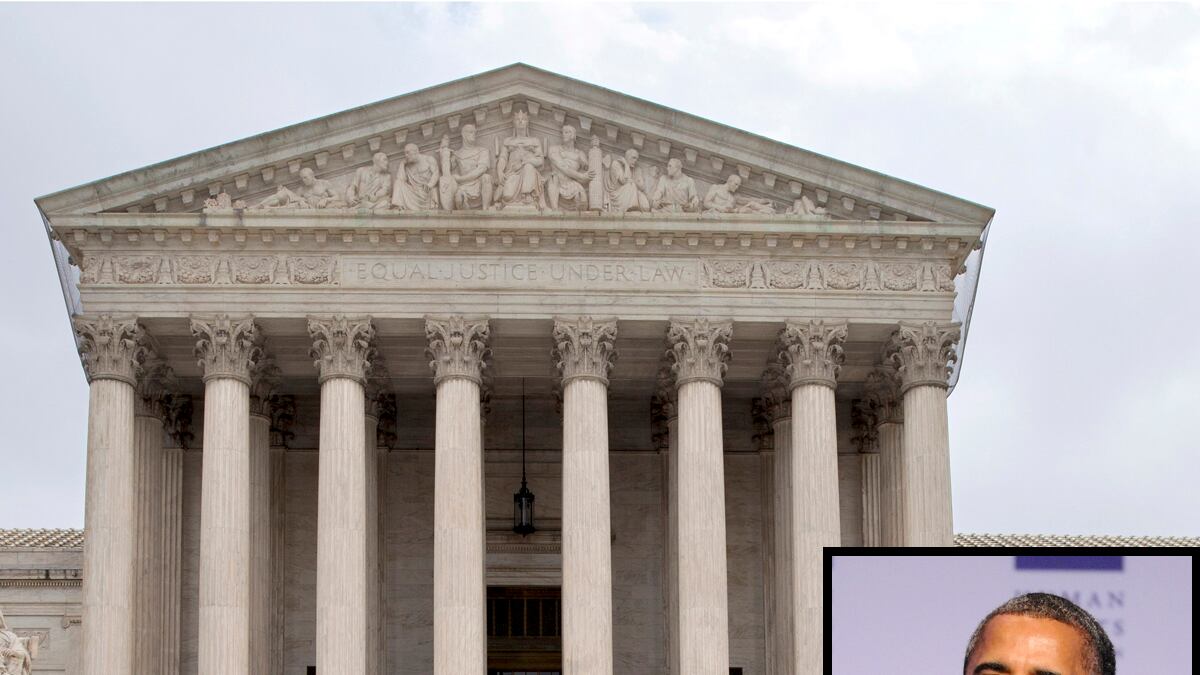The Supreme Court announced today that it will rule on the constitutionality of President Obama’s signature legislative achievement: the landmark health-care-reform law passed in 2010. Reflecting the significance of the issues raised by the Affordable Care Act (ACA), the Justices set aside five and a half hours for oral argument—more than five times the length of the usual hearing. For the Obama administration, the extended time is welcome news. Its lawyers may need all that time just to answer a single question: what, if any, are the limits on Congress’s power?
When the justices hold their hearing on the ACA, which is expected to be in March 2012, they will address a number of legal issues raised by the law. The most important one relates to the “individual mandate,” which requires nearly every American to have health insurance by 2014. Critics say that while the Constitution authorizes Congress to regulate “commerce ... among the several states,” it does not give Congress the power to force people to enter into commercial transactions with a private company, like a health-insurance contract. Such people, they say, are “inactive,” unlike someone who chooses to drive a car and is therefore required to purchase automotive insurance.
Courts that have weighed in on this question have split.
The administration was buoyed last week by a decision of a federal court of appeals in the District of Columbia. In an opinion authored by Laurence Silberman—a conservative judge who is close friends with Clarence Thomas—the court upheld the insurance requirement. The court recognized that the insurance mandate was novel, but emphasized that so was the critics’ argument against it. The Supreme Court has never clearly held that Congress can’t force “inactive” people to become “active.”

Judge Silberman’s opinion, however, also pointed out what is sure to be the main hurdle for the government in the Supreme Court. In recent years, the Supreme Court has repeatedly stressed that Congress’s power under the Commerce Clause is not unlimited—and struck down laws when the government’s lawyers failed to identify clear boundaries to federal power.
United States v. Lopez is instructive. That case involved a Commerce Clause challenge to a federal law banning gun possession near schools. During oral argument, the Justices repeatedly asked Drew Days, the solicitor general at the time, what he saw as the limits of Congress’s power. If Congress could regulate the mere possession of a gun under the guise of regulating interstate commerce, what couldn’t it regulate? Days struggled for an answer. He insisted that, yes, Congress’s powers were limited, but, no, he couldn’t point to exactly what those limits were. The Supreme Court struck down the law, explaining that it had to do so to maintain the Founders’ vision of a federal government with only limited, enumerated powers.
This same question—what are the limits of Congress’s authority under the Commerce Clause—is at the heart of the dispute over the health-care law’s individual mandate. If Congress can force someone to purchase health insurance, critics and some judges have said, then Congress can do anything: require people to eat broccoli, buy American-made cars, or go to the gym.
So far, the administration has struggled to find a persuasive and compelling answer to this question. In a lower-court hearing a few months ago, then–Acting Solicitor General Neal Katyal was asked by Judge James Graham, “Where, ultimately, is the limit on Congress’ power?” Katyal replied that the administration absolutely agreed that the Constitution circumscribed Congress, but he couldn’t offer any detail as to where exactly the boundaries were. “Where are they?” Judge Graham, a Democratic appointee, asked again. “I want to find them.”
Silberman also recognized this dilemma for the government in his opinion last week. “The Government concedes the novelty of the mandate and the lack of any doctrinal limiting principles; indeed, at oral argument, the Government could not identify any mandate to purchase a product or service in interstate commerce that would be unconstitutional, at least under the Commerce Clause.” Nonetheless, Silberman voted to uphold the mandate largely because of precedent. Even though the justices have insisted on limits to federal power in occasional cases, in general the court tends to defer to Congress when it comes to economic matters.
The Supreme Court is not likely to be so forgiving. Unlike the lower courts, such as Silberman’s, the Supreme Court is not as bound to past decisions. Precedent matters less to the justices than principle. If the administration’s lawyer can’t identify with clarity and precision the principled limits on Congress’s power, the insurance mandate is likely to be invalidated.
Like most of us, the justices of the Supreme Court recoil at the thought of being forced to eat broccoli.





